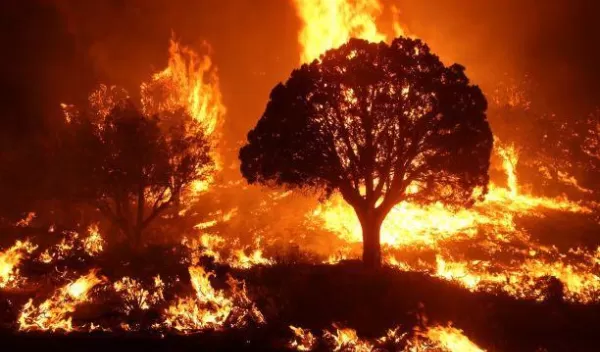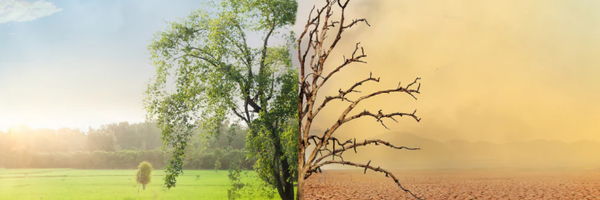How has and will climate change affect Calgary ?
Grade 6
Presentation
No video provided
Problem
The problem that I am focusing on is Climate Change and how that has, is and will affect Calgary.
Method
Research
Background Research :
What is climate change ?
Climate change refers to long term shifts in temperatures and weather patterns . Climate change can be natural due to changes in the sun's activity,volcanic eruptions and the earth's orbit . But since the 1800 ’s ( start of the industrial age ) human activities have been the main cause of climate change, because of burning too much fossil fuels like oil, coal and natural gas .
Climate meaning
Climate is a long term weather pattern in the area.
Weather meaning
Weather is a short term activity in the atmosphere. Ex - thunderstorm or/and rain in your area.
Spring :
- Warm, humid and drizzly, not too hot or too cold
Summer : ]
- Unbearably HOT, very little rain
Autumn/Fall :
- Not too hot or too cold, windy, rainy/snowy
Winter :
How is climate change caused ?
Generating power :
- Burning fossil fuels causes greenhouse gas emissions which traps heat
- We release lots of greenhouse gases by generating power since we have to generate power everyday
Manufacturing Goods :
- Making cement,iron,steel,electronics
plastic and clothes burns fossil fuels
- Mining also releases gases which traps more heat
Transportation :
- Most cars,trucks,ships and planes run on fossil fuels which causes greenhouse gas emissions
- Transportation is responsible for nearly ¼ of global energy - related CO2 emissions
Cutting down forests :
- When trees are cut they release all the CO2 they've been storing
- Every year approximately 12 million hectares of forests are destroyed
- Deforestation,agricultural and other changes are responsible for roughly ¼ of global emissions
Producing food :
- Producing food causes CO2,CH4 ( Ch4 = Methane ) and other greenhouse gases
- These gases are released by deforestation/clearing of land, digestion by farm animals, production/use of fertilizers and manure for growing crops
Powering buildings :
- Globally residential + commercial buildings consume over half of all the electricity
- Heating and cooling rely on electricity, electricity consumes fossil fuels which causes significant greenhouse gas emission
- Growing demand for electricity will cause more greenhouse gas emissions
Consuming too much :
- Your home,use of power, how you get around, what you eat + what you throw away all contribute to greenhouse gas emissions
- Consumption of goods such as clothing, electronics and plastics also contribute to greenhouse gas emissions
- A large chunk of emissions are linked to private households
Climate Zones
And what makes a Climate Zone
WHAT is a Climate Zone ??
A climate zone is a specific region on Earth that has very clear/distinctive weather patterns like the temperature, humidity levels and the amount of rain. Most of the time these zones are categorized into 5 main zones: they are tropical, dry, temperate, continental, polar, and 1 subzone: highland.
All you need to know about the Main Zones
Polar :
- Freezing temperatures YEAR round
- Very little vegetation ( plants )
- Ex - Northern Canada
Temperate :
- Moderate temperatures
- Four seasons that are easy to tell apart
- Ex - SouthEASTERN Canada
Continental :
- Extreme temperatures
- Still has four seasons
- Hotter summers, Cold winters
- Ex - the southern Canadian prairies
Dry :
- Extremely HOT
- VERY little rain
- Ex - Sahara Desert
Tropical :
- WARM temperatures year round
- High levels of precipitation
- Found near the equator
- Ex - The Bahamas
Subzone
Highlands :
- Different elevations, Cooler temperatures
- Very diverse ecosystem
- Ex - Rocky Mountains
What affects and makes the zones different
Latitude :
- How far your climate zone is from the equator, this is measured in degrees
Proximity to water :
- How close your zone is to large bodies of water (Ex. Oceans or Very big lakes), which can affect the stability of temperature and moisture levels
Elevation :
- How high the zone is from sea level, this can affect the temperature and the amount of precipitation
- The higher elevation zones have cooler temperatures most of the times
Main Research :
The GreenHouse Gas Effect :
It all starts when a greenhouse gas is released into the air by deforestation, factories, cars etc. Then the gas or gases float upwards and into our Earth’s atmosphere. When solar radiation or sunlight travels from the Sun to Earth and enters the atmosphere the greenhouse gases act like a blanket. Trapping all the heat that entered and letting some heat out. When the solar radiation or sunlight hits the atmosphere some rays bounce off our atmosphere and enter vast space. The Greenhouse Gas Effect is one of the main causes of climate change because it traps heat in the atmosphere which eventually comes down to the surface, making it hot on the surface.
Examples of Greenhouse Gases :
- Carbon Dioxide(CO2)
- Carbon monoxide(CO)
- Methane(CH4)
- Nitrous oxide(N20)
- Fluorinated gases
- Water vapor
Pollution :
There are multiple types of pollution, the most common known types of pollution are air pollution, water pollution, land and soil pollution, plastic pollution, noise pollution (mostly in cities)and light pollution. Most of the pollution above is found in cities(urban) rather than towns and villages(rural).
Examples of Pollutions :
- Plastics in the ocean
- Smoke and dusk in the air
- Loud cars
- At night, the street lights, car lights
- Gunk and plastics thrown in lakes, rivers, seas and oceans
Some everyday products like batteries, cell phones and plastics all end up in landfills, producing methane and carbon monoxide. Both are greenhouse gases.
Things we can do to reduce Climate Change
Saving energy at home :
Most of your electricity and heating is powered by fossil fuels. Using less energy by lowering your heating and cooling, washing your clothes in cold water, hanging your clothes to dry instead of using the dryer.
Change your homes source of energy :
Ask your utility company if your house’s(or houses if you have more than 1) energy source is powered by any fossil fuels. If your house is powered by fossil fuels, see if you can switch to a renewable source of energy( like solar, wind, hydro). By doing this you will reduce your carbon footprint.
Using less transportation :
The roads and highways are always full with cars, trucks. Most of the ones you see are running on diesel or gasoline. Walking, jogging or biking to close by places reduces your carbon footprint and it helps your health a lot, and carpool whenever you can.
Switch to an electric car or truck :
Planning to buy a new car ?? Consider going electric or hybrid, more and cheaper are coming up on the market. Electric cars also cause less greenhouse gas emissions(by a lot), reduce your carbon footprint, and help countries reduce their yearly greenhouse gas emissions as well.
Consider your travel :
Every single airplane uses tons of fuel(varies on the model). Because of the amount of fuel used by airplanes, every flight releases tons and tons of carbon dioxide. Taking less flights reduces your carbon footprint by 2 tons.
What does climate change mean for Calgary ??
8 climate hazards/extreme weather are becoming more and more likely because of climate change and its harsh effects.
Extreme Heat :
- Calgary will experience increasingly hot summers with more frequent and longer heat waves and heat domes
- Some side effects of hotter summers are droughts, wilde fires, record breaking heat
Droughts :
- With hotter summers drought conditions will become very common, prolonged and widespread
Wildfires :
- A longer and drier fire season = more frequent,larger and intense wildfire
- In my opinion if that did happen, it would be best if you weren’t allowed to camp in large forest areas

Shifting Seasons :
- Spring arrives earlier, Summer’s longer, Fall arrives later, Winter is shorter and warmer
Heavy Rainfall :
- More rain is falling ( most likely during spring ) as short-duration, high-intensity storms (SDHI) overland flooding
Heavy Snowfall :
- Damaging winter storms, heavy snow and harsh blizzard conditions will continue to be extreme hazards
Severe Storms :
- Hail,high wind events/tornadoes are more likely to occur more frequently over more months of the year
River Flooding :
- Flood timing, intensity and frequency is likely increasing
- Floods like the 2013 Great Calgary flood might become more likely because of climate change
How does Calgary contribute to Climate Change
How does our City track the amount of greenhouse gas emissions :
In Calgary, the City council track’s the amount of greenhouse gas emissions added into our atmosphere. They do this every year by tracking all the activities that happen in the city limits.
What causes these greenhouse gas emissions :
Mostly ⅔ of all the greenhouse gas emissions in Calgary are caused by power demands in buildings. The other ⅓ of the greenhouse gas emissions are caused by transportation(cars, trucks, planes, maybe boats). The remaining 1% of our city's greenhouse gas emissions come from our 3 landfills, the greenhouse gas they release is methane(CH4).
Urban, Suburban or Rural ??
Rural :
This means the countryside, where there are farm lands and very few houses and/or people. Ex - Boyle. Population of Boyle is 818 {2024}. Rural areas normally have anywhere from 100 to 1000 people, sometimes less than a 100.
Suburban :
This means towns that have more people than a rural area, but less people than an urban area. Ex - Cochran. Population of Cochran is 37, 613 {2024}
Urban :
This means the city, where there are many people and communities. Also cities with tall skyscrapers in the horizon. Ex - Calgary. Population of Calgary is 1, 562, 600 {2024} !! Urban areas normally have anywhere from 100, 000 to 1 million plus people !!
Data
None colleceted, this project was only research. Also to share my finds on my topic.
P . S If the information counts as data, then yes I collected data.
Conclusion
Conclusions :
Climate Change has affected Calgary by making our summers and winters hotter. The only times it's felt like a true warm summer was in 2022. The only times it's felt like winter was in the beginning of December and the cold snap that happened recently. Climate Change will affect Calgary by making our seasons hotter(especially summer and winter), harder hitting weather etc. Because of all the changes that might/will happen the welfare of Calgary's citizens matter most.
Citations
Page . 1 - https://www.un.org/en/climatechange/what-is-climate-change
Page . 1 + 2 - click the link for page . 1 on your right side of your screen there is more topics scroll down until you see the one that says “ causes and effects” then click on “ causes of climate change”
Page . 3 - Calgary's Climate Change Program Then click “Expand all” or click “What does climate change mean for Calgary” near the bottom
Page . 4 - Calgary's Climate Change Program Then click “ Expand all or just click “How does Calgary contribute to climate change” near the bottom
Page . 5 + 5 ½ - https://www.un.org/en/actnow/ten-actions
Page . 6 - Same link https://www.un.org/en/actnow/ten-actions
Acknowledgement
I acknowledge the websites that I used for some of my information.
I am thankful for my friends in science fair that helped me along the way.
I thank the people whoses pictures that I used for my trifold/project.
I am soooo thankful for my parents ( Gyanendra Sharma-dad, Tara Poudel-mom ) for helping me organize my Tri Fold and help with the online Informmation.
I am very evry thankful my science fair teachers for helping me with my research.

